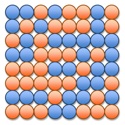

|
15110
SUMMER SESSION TWO - 2014
|
Fast Links: Extra Help Hours | Additional Extra Help | Python | Course Tools | Additional Resources
Consult this page for extra help hours, notes on using Python, and links to learn more about the field of computing.
SCHEDULE TO BE POSTED

We have set up an account with Piazza,
a new online tool for you to post
and answer questions about course material. You should receive an email
invite. Participation in Piazza is optional, and you can set the
frequency of messages from Piazza individually. Some of our course
assistants and the instructors are monitoring Piazza regularly. Please
do NOT post assignment answers or Ruby code you are using for your
assignments. The questions should be about course material or general
questions about the assignments.

Academic Development
on campus also offers additional tutoring services for 15-110
and other introductory courses. Visit their website for more information.
The goal of this course is to introduce you to computational thinking and computer science, using programming principles as part of that process. This course is not a course on computer programming in and of itself. However, if you want to learn more about Python, you can follow these links for additional information:
Non-Programmer's Tutorial for Python 3
The Python Tutorial
The Python Language Reference
- for in-depth information
gedit - the text editor we use in lab, installers for Mac OS X and Windows are available
Python3 Downloads are available. (Look for version 3.3.2.) You do not need to download Python on your own computer to complete this course since you can use our Linux labs to do all of your work (or ssh into the andrew servers from outside the lab). But if you want to have your own installation, this link should help. Be sure to download version 3.3.2 which matches what is on the andrew machines at CMU.
On Macs, Terminal should be available in the Applications folder.
PythonLabs is a software module that accompanies the book Explorations in Computing by John Conery of the University of Oregon. The following high-level instructions are expected to work both on OS X and Windows machines. However, if you are having trouble installing PythonLabs on your local machine following these instructions you should use PythonLabs by remotely accessing the Unix/Linux servers in the Andrew domain. It is preinstalled in that domain. The instructions for remote access can be found below on this page.
Instructions for Electronic Handin
Light-Bot 2.0 - program the robot to solve a variety of challenges
Computers and computational thinking have influenced the sciences, humanities, economics, and many other fields. With the aid of computation, many fields have made tremendous strides recently. Check out these additional resources about how computation makes a difference in the world today!
Computer History Museum
- take a virtual field trip to Silicon Valley
WIRED News
Technology Review
CNET's Technology News
Government Computer News
CS4FN - Computer Science For Fun